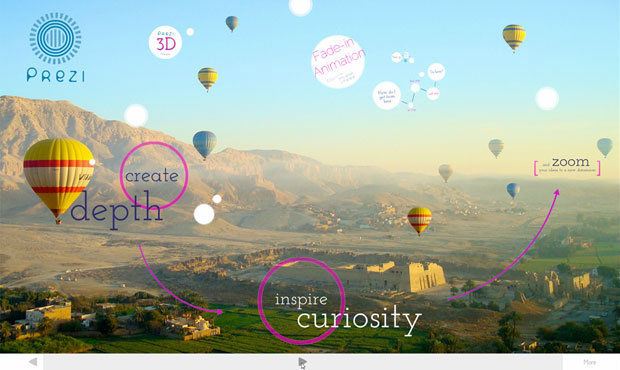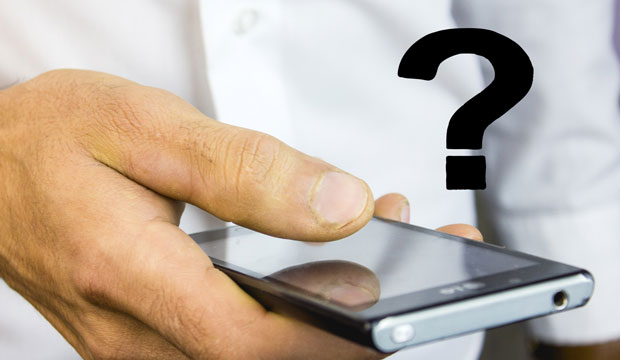At a rumored US$1,400 sale price the coming iPhone 8 likely will test just how much people are willing to pay for a new phone — particularly, how much parents are willing to fork over for their kids. While iPhones once conveyed status and sense of luxury, similar to a brand like Cadillac, pretty much everyone and their brother has iPhones today.
The first few customers who get their hands on the latest model will be envied for about a week — but the phones will be extremely common by the end of the first month.
Interestingly, there are some phones that may have more status than the iPhone, and they likely will have one or two advantages over it, including price.
I’ll share some observations on smartphones and close with my product of the week: an interesting presentation product called “Prezi.”
Hydrogen One
The Hydrogen One won’t show up until early 2018, but it may be worth waiting for. I’m intrigued because it is coming from the company that created the Red Camera, which costs around $50K and is used in movies like Transformers and Guardians of the Galaxy.
With a price that is expected to fall well within the new iPhone’s range ($1,200 to $1,600) this Android phone obviously leads with the best camera ever put on a phone — basically, a DLSR with removable lenses.
This would be for the person who wants to get truly professional-level pictures and videos using a smartphone. It has an interesting case designed to keep you from dropping this expensive camera phone while filming. The Hydrogen One also has a 3D display that doesn’t require glasses, and it has a Moto Z-like area that suggests there will be many attachments for this puppy.
If your goal is to take the absolute best pictures and videos, this phone is the one for you, and it may be worth the wait. The 3D display could be cool or goofy, and I’ll hold off on that decision until it’s actually working on a phone. Given the price and the unique look of this phone, it has the potential to generate envy — particularly from those who appreciate high-quality pictures.
Samsung Note8
If it weren’t for the Note7’s overheating problem, it could have been an iPhone 7 killer. Folks loved the phone — at least those who didn’t have the thing catch fire on them.
The Note8 promises to provide a similar level of advancement, and one of the largest screens in the industry (6.3 inches), at price point that should fall below the iPhone 8 (estimated around $1,000).
Due late in the third or early in the fourth quarter and likely to release after the iPhone 8, it will be the new flagship phone from Samsung.
The Note8 has a stylus, a decent quality camera, and an odd place to put the fingerprint sensor, which likely will have you putting fingerprints on the camera lens. Given allegations that Apple is crippling its phones due to the Qualcomm litigation, this phone should outperform the iPhone, and its OLED display easily should be a match for anything Apple brings to market.
This phone will favor folks who really want the biggest phone they can get and who want to write with it. It may be the best for mixed media content consumption and creation (including drawing and writing) in the group.
Pixel 2 XL
The Pixel 2 is Google’s showcase phone, and while the Pixel 2 XL is smaller than the Note8, at 6 inches it is still one of the largest phones you are likely to see in market.
It too will have a beautiful OLED display, and it will have a better-placed fingerprint reader than the Note8.
The Pixel 2 XL is what Google thinks a smartphone should look and feel like, and it should provide the closest thing to an Apple-like experience from any Android phone maker. At $1,199, the Pixel 2 XL isn’t cheap either, but it should provide the best consistent experience of any Android phone. It’s built by HTC and has an impressive camera.
This isn’t the best-looking phone of this group, but it may be one of the best-engineered. This is probably the phone that the guys in Big Bang Theory would lust for.
BlackBerry KeyONE
The BlackBerry KeyONE is what I currently carry myself. It has several advantages. At less than $550 unlocked, it is one of the cheapest flagship phones on the market. It has an actual keyboard, and it has impressively long battery life.
It also has BlackBerry’s DTEK technology, making it one of the most secure smartphones on the market. This phone is for power users who text or write a lot on their phones, as well as for those who are very concerned about someone hacking into their smartphone.
It has a decent camera with twin LEDs, and the fingerprint scanner is on the spacebar. Thanks to the keyboard, this phone looks very different and it tends to attract more attention than most as a result.
This phone’s cost and productivity focus convey a sense of seriousness and maturity that other phones likely can’t match. It is a ton faster to type on than a more typical screen-based smartphone. Oh, and it’ll take the biggest SD card you can find for added storage.
Essential Phone
This phone was supposed to release back in June, and with no new delivery date it is just a tad late. Apple has been working furiously to keep this phone from coming to market, suggesting that it could be the real iPhone killer in the bunch.
Not a great deal is known about the final phone other than it’s likely you’ll be able to buy two of them for the price of the iPhone 8. It will have a reasonably priced 360-degree camera option, and it is coming from the father of Android, Andy Rubin. Apparently, it has a HUGE status bar.
This phone is expected to price out around $700 with the 360-degree camera — you know you’ll want it — making it one of the better value phones in this collection.
This is likely for the person who really doesn’t like Apple and wants a phone that is not only distinctive but also a clear affront to Apple and the iPhone. Yes, I have one on order, mostly to hold up to my friends who will be getting iPhone 8s, to point out how much money they could have saved and how cool a 360-degree camera is.
Wrapping Up
As noted, I have the KeyONE myself, which has the most positive differentiators, compared to the iPhone 8. You can buy it now, it is less than half the price, it has a keyboard, it is more secure, and it arguably is as distinctive as the Hydrogen One.
There is something to be said for a phone that made it to retail — something the Essential Phone is struggling with now. While I’m probably lusting after the Hydrogen One the most, I also realize this is the firm’s first phone, which typically would have me recommend waiting at least until version 2 is released, as version 1 of anything will have issues.
I’m less worried about the Essential Phone because it comes from an experienced team of phone folks, but they are having trouble shipping the thing, which suggests they have run into some production issues (likely not helped by Apple’s interference).
In the end, if you want something other than the iPhone 8 — which, to be fair, is expected to contain some of the biggest moves Apple has ever made, including an OLED display and iris biometric security — there are some fascinating choices coming, any one of which could have certain iPhone 8 users potentially lusting after your phone.
Something Apple users often forget is that the freedom to make a choice can be an amazing thing.
I’ve developed a love/hate relationship with PowerPoint over the years. Yes, it is very easy to make a presentation but way too easy to make a crappy one. Bad habits result in presentations that basically are speaker notes that people don’t retain — and that I’ve come to dread seeing like I dread seeing the proctologist.
Some weeks I feel like if I’m presented with just one more bulleted PowerPoint deck my brain will jump out of my ear and run across the border to Mexico.
Granted, much of the problem is that we aren’t willing to take the time, and I include myself, to make a great presentation — but the result is that most PowerPoint presentations are a form of audience abuse.
Prezi is a very different tool. It is cloud-based, and it forces you to think about presentations visually, organizing the information not as a summery but as each element interrelates visually. That makes it harder to create a presentation, but it should result in a far better — and by better, I mean more likely to be retained — result. We organize information visually, and Prezi uses that preferred organizational method by default.

Now if you want something quick and dirty and don’t really care if anyone remembers what you say, Prezi isn’t the tool for you. However, if you want to move the ball and convey a message that folks will remember — assuming you put in the effort — the result can be a far more powerful learning tool.
The folks behind Prezi recently started to make AR enhancements that better blend the presenter and the material, making it a far more powerful tool for streaming presentations. It is the only tool I know of that anticipates all of us having access to AR glasses at some point. It is also the tool overwhelmingly preferred by millennials because they never learned PowerPoint.
Because I do like to move the ball, and Prezi potentially does that, it is my product of the week. (And it is the only thing keeping my brain from escaping to Mexico.)

























































Since I don’t spend my entire life worrying about showing off, like Rob does, I guess I can just buy a phone that works. Hmm, my iPhone 6s works fine, maybe I’ll just keep it unless the next iPhone has something I want.
I’ll keep my RAM 3500 to pull my RV instead of spending a couple of hundred K on electric status symbols also.